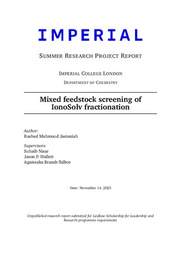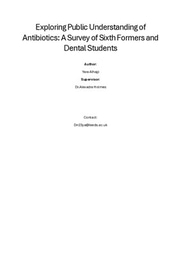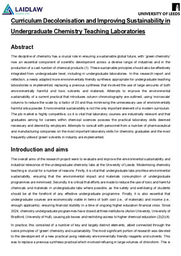Project Outline: An Assessment of the Environmental Viability of the Ecotourism Model within Boracay Island, Philippines
An Assessment of the Environmental Viability of Ecotourism within the Philippines
Name: Jasmine Relf
Supervisors: Dr. Iris Moeller, Professor of Geography and Head of Discipline at Trinity College Dublin and Dr. Susan P Murphy, Assistant Professor in Development Practice Discipline of Geography, School of Natural Sciences
Introduction
The aim of the proposed project is an assessment of the environmental viability of ecotourism within Boracay, Philippines. More specifically it will focus on the legacy effects of the temporary tourist exclusion policy on the island and its implications for the Island’s coastal ecosystem. This study will give insight into whether a move within the tourism industry towards ecotourism through extreme exclusionary policy effectively mitigates and adapts to environmental degradation, and climate change.
The Philippines was chosen firstly because it is a tourist hotspot. Tourism accounts for 22.5% of the country's GDP pre-pandemic. From a community level of analysis, tourism is the sole source of development, and livelihood for many of its islands.
Secondly, the Philippines is extremely vulnerable to the impacts of climate change specifically typhoon intensity, and rising sea levels. These events are exacerbated by damage occurring to coastline ecosystems, which is a direct result of human activity such as tourism.
Thirdly, Boracay Island was chosen as the study site, due to its unique tourism policy. The government shutdown the island for six months, to curb the tourism-induced environmental degradation. The shutdown of the Island led to a shift towards an ecotourism model, which is exhibited in the tourist quota, business practices and the implementation of efficient water, and waste systems and electric transportation services. Studying the efficacy of the ecotourism within Boracay gives the opportunity to address whether coastal degradation can be halted, without banning tourism altogether.
Lastly, the site was chosen due to its feasibility and accessibility. I have distinctive past knowledge and an excellent network to support the project, as I grew up in the Philippines.
There is previous literature on the specific benefits of ecotourism, but there has been a lack of focus on the Philippines despite it being a tourist hotspot with a rising ecotourism industry (Romero-Brito et al., 2016). There is however new literature on the island of Boracay based on the government's 2018 policy. Maming et al.'s paper (2021) focuses solely on this policy and its effects, providing more of a summary. There is scope to evaluate the success of the shutdown and resulting shift towards ecotourism from a focused environmental standpoint.
Project Methodology and Timeline
Week 1: Methodology and Preparation
- Interview questions, and questionnaire will be refined
- This includes translations and liaising with participating organisations to finalise interview dates and mechanisms.
- Troubleshoot the data collection process, and if problems arise there will be reconfiguration alongside the guidance of my supervisors.
- This time will include an in-depth assessment and analysis of existing literature surrounding the topic of introducing ecotourism and its efficacy, and the environmental degradation caused by tourism from both a global and state-wide lens.
Week 2 & 3: Survey and Data Collection
- During this time, I will be at the research site of Boracay Island. This will include myself actively collecting questionnaire data from the local populus. I will aim to sample approximately 100 people, with the survey taking a maximum of five minutes per person.
- This is also a time where I will interview local ecotourism business staff.
Week 4 & 5: Interviewing
-
During this time I will be conducting interviews. These interviews will be primarily online through zoom. The longer time period allows for flexibility depending on the availability of desired interview participants.
Week 6: Presentation of Data and Final Review
- This week will be utilised to digitalise all survey results and interview results. This time can also be utilised to account for any difficulties or set-backs faced during the research. This week will also include the drafting and finalising of the project outcomes, which will be a comprehensive report.
Intended Outcomes of Research
This research project provides an accurate assessment of whether ecotourism is a viable solution to environmental degradation caused by tourism, from a local, and national level of analysis. This conclusion can then be applied globally to similar locations. This research paper would provide recommendations about a potential transition to ecotourism. If the policy and ecotourism model is proven to be effective, it can be assumed that other tourist hotspots should implement similar radical measures to lessen the degrees of ecosystem pollution.
It is important to note that ecotourism is not a one-size-fits-all label, and rather it can come in various forms. It can be encouraged for further research to be conducted on what specific ecotourist business strategies are more environmentally beneficial. If there is unequivocally conclusive evidence it can also inform policy makers, especially within local governments, on how to enforce specific environmental regulations, surrounding waste management, and emissions.





Please sign in
If you are a registered user on Laidlaw Scholars Network, please sign in